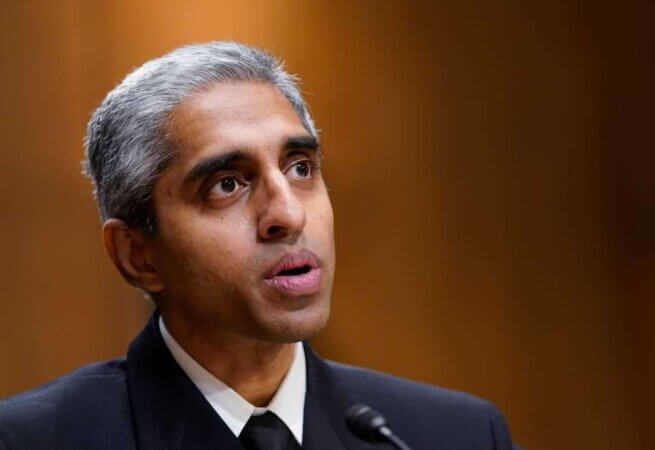Science often trails common sense, and the government often trails science. When technology explodes in the private sector with unprecedented rapidity, both scientific studies and policymakers lag, to sometimes detrimental effects.
Social media presents the perfect example of this conundrum.
Myspace launched in 2003, the first social network to reach a worldwide audience. Tuesday, twenty years later, the US Surgeon General released a public statement about the “profound risk” of social media’s harm (PDF) to children and adolescents.
Dr. Vivek Murthy advises, “Our children have become unknowing participants in a decades-long experiment.” The results of this dramatic experiment do not look good.
The effects of social media on kids
We’ve written about the risks of social media before, especially for kids, but the Surgeon General’s Advisory brings new credence to the ill effects.
While the Advisory calls for “more research” in several areas, they came to a few definitive conclusions.
Kids ages ten to nineteen are in pivotal stages of brain development. Anyone with a teen could tell you how teens are more susceptible to social pressure and “risk-taking behavior.” In this developmental stage, “mental health challenges such as depression typically emerge.” Teens experience heightened emotional sensitivity and impressionability as they struggle to form their sense of identity.
Enter social media.
Kids who spend over three hours daily on social media face “double the risk of experiencing poor mental health outcomes including symptoms of depression and anxiety.” Well, eighth through tenth graders spend an average of 3.5 hours per day on social media.
So average social media use essentially doubles troubled mental health symptoms in teens.
In addition, one in four eighth through tenth graders spends over five hours a day on social media, while one in seven spends over seven hours a day on social media. Social media often results in bad sleep, which in turn impedes healthy development and increases mental health instability.
Cyberbullying and brutal, engineered comparison games lead to body-image and eating disorders. Social media-induced “fear of missing out” corresponds with “depression, anxiety, and neuroticism.”
Children can also stumble across content that normalizes self-harm, suicide, hateful content of all persuasions, and risk-taking challenges. Pornography and sexual predators can intercept children through social media. Nearly six in ten girls say strangers have contacted them “in ways that make them feel uncomfortable.”
We’ve previously discussed how parents today tend to under-monitor internet activity while over-monitoring real-world activities, raising fragile teens unable to cope with the real world but at risk of warped development due to the internet.
“We must take action”
The Advisory warns, “Our children and adolescents don’t have the luxury of waiting years until we know the full extent of social media’s impact. Their childhoods and development are happening now.”
Nearly 80 percent of parents believe tech companies bear some responsibility to protect children from these multifaceted harms. Could this rally both sides of the aisle to hold social media companies accountable? While the threat to children remains a top priority, social media undoubtedly upturned our society and shifted America’s social dynamics for adults. The impact on public discourse can barely be overstated.
The Advisory gave some positives to social media, but even those “benefits” included things like giving LGBTQ+ kids support for their sexuality. Of course, social media can genuinely give rise to free access to education and niche communities based on interest, but this cuts both ways. As kids try to form their identity, trans or queer influencers can present a misleading but appealing message about sexuality.
How should Christian parents deal with social media?
As Christian parents, we need to lead intentionally with our kids.
- Draw boundaries and keep them rock solid.
- Educate your kids on the inherent risks, pornography, and stranger danger.
- Allow them freedom in proportion to their trustworthiness.
- Give them a safe space to talk about things that make them uncomfortable.
- Be a loving ear for their woes and keep up a healthy dialogue about their relationship with social media.
- Carefully consider at what age to allow them to enter certain sites, if ever.
The Advisory has other recommendations.
This article was originally published on Denison Forum.
Looking for other resources on tech and media?
Social media, screens, and the over-indulgence of information
What if your kids already have screens, and you’re having second thoughts?
Here’s what to do if your kid is screen-addicted
Helping your son navigate the digital age



